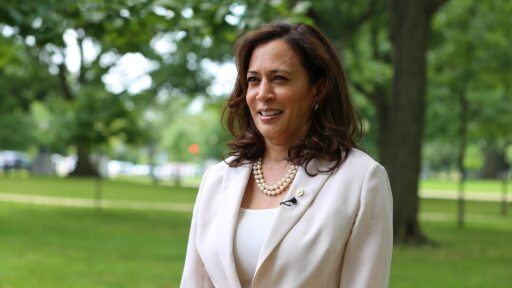Trump Loses Grip On 2 States
The presidential race in North Carolina and Georgia has taken a dramatic turn, with both states now firmly categorized as swing states. This shift follows the entry of Vice President Kamala Harris into the race, marking a significant change from earlier dynamics.
Previously, the race appeared to lean heavily in favor of former President Trump, especially after President Biden’s exit from the race. In Georgia, a state Biden narrowly won in 2020, Trump’s prospects seemed strong. Similarly, North Carolina, which has only seen Democratic victories twice in the past half-century, appeared to be a long shot for the Democrats.
However, the landscape has now shifted. Vice President Harris’s candidacy has revitalized Democratic efforts in these key states. Scott Tranter from Decision Desk HQ notes that Harris’s improved polling numbers in Georgia and North Carolina are partly due to her stronger appeal among African American voters and a noticeable boost in enthusiasm among Democratic and independent voters.
Current polls reflect a tight contest: Trump leads Harris by just 0.3 percentage points in Georgia, while Harris has a slight 0.1 percentage point lead in North Carolina. This is a marked change from before Biden’s departure, when Trump had a more comfortable lead. A recent Quinnipiac University poll even shows Trump with a slight edge in Georgia, while North Carolina remains too close to call.
Fox News has updated its forecast to give Harris a slight edge in the overall race, driven by the competitive nature of Georgia and North Carolina. Trump, who won both states in 2016 and North Carolina again in 2020, is facing a tougher challenge. The former president is actively working to secure these states, visiting Charlotte and Georgia, and seeking to repair his relationship with GOP Governor Brian Kemp in Georgia.
In North Carolina, Harris’s campaign has made significant strides. Her recent visits to Charlotte and Greensboro drew large crowds, with 7,500 and 17,000 attendees respectively, compared to Biden’s post-debate rally in Raleigh, which had only 2,000 attendees. This surge in support is crucial, as North Carolina’s 16 Electoral College votes are vital for a winning strategy.
Democratic strategist Morgan Jackson highlights that North Carolina, previously viewed as leaning Republican, has become a fiercely contested battleground. Jackson likens the current Democratic enthusiasm to the surge seen in 2008, when Obama narrowly won the state. Harris’s campaign has injected new energy, with reports of nearly 2,000 new volunteers joining the cause following Tuesday’s debate.
The strategic importance of North Carolina cannot be overstated. Losing the state would force Harris to rely heavily on victories in Pennsylvania, Michigan, and Wisconsin. Conversely, winning North Carolina would provide a crucial buffer.
GOP strategist Doug Heye questions whether Harris is merely replicating Obama’s successful model or trying to expand it. He suggests that visiting rural areas could be key to broadening her support base. Meanwhile, Trump must intensify his efforts to secure North Carolina and not take it for granted.
In Georgia, Harris is also making significant strides, leveraging her connection to historically Black colleges and universities (HBCUs) to galvanize support. The Peach State, which Biden won by a narrow margin in 2020, is increasingly competitive. Atlanta-based strategist Fred Hicks notes that Harris’s leadership has energized Georgia Democrats, particularly among voters of color and young people.
Overall, both North Carolina and Georgia have emerged as crucial battlegrounds in this election, with Harris’s campaign making notable gains. The coming weeks will be pivotal as both sides work tirelessly to sway these key states.







